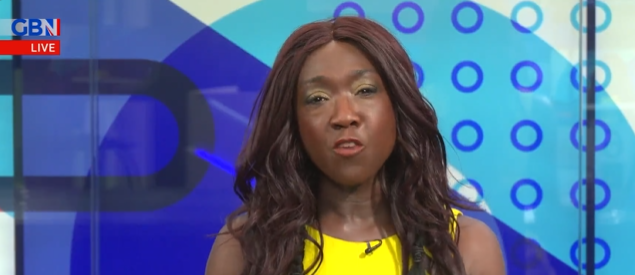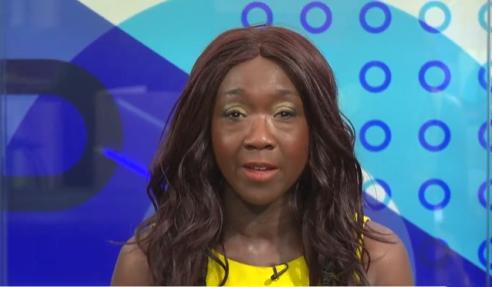“If My 5yrs Old Son Told Me He Identify As a Girl, I would ask this Questions”Nana Akua Expresses Views on Primary School Teacher Sacked for Refusing to Use 8-Year-Old’s Preferred Pronouns (Video)

Renowned activist and advocate for inclusive, Nana Akua, has voiced her opinion regarding the recent dismissal of a primary school teacher who refused to use an 8-year-old student’s preferred pronouns. The incident has sparked a nationwide conversation on the balance between personal beliefs and respecting individual identities within educational settings.
The teacher in question, whose identity remains undisclosed, was terminated from their position after declining to use pronouns that did not align with the student’s assigned gender at birth. The school administration, citing their commitment to fostering an inclusive environment, took decisive action to ensure that the student’s rights and dignity were upheld.
Nana Akua, a prominent figure known for her advocacy work in promoting understanding and acceptance, expressed her perspective on the matter. In a statement issued yesterday, she emphasized the importance of validating and respecting gender identities, particularly in educational institutions. Akua stated, “It is crucial that we create safe spaces where all children feel acknowledged and embraced for who they are. Understanding and supporting diverse gender identities is fundamental to nurturing an inclusive society.”
The incident has drawn both support and criticism from various quarters. Supporters argue that embracing preferred pronouns is essential for the emotional well-being and self-esteem of transgender and non-binary individuals. They stress that schools play a crucial role in fostering an environment of acceptance and respect.
On the other hand, opponents argue that personal beliefs and freedom of expression should not be compromised in the name of inclusivity, emphasizing the need to strike a balance between individual rights and institutional policies.

The case has prompted discussions about the importance of training and equipping educators with the necessary tools to handle situations involving gender identity. Calls for comprehensive teacher training programs to address LGBTQ+ issues and provide guidance on navigating such sensitive topics have gained traction.
As the dialogue surrounding this incident continues to unfold, it underscores the need for ongoing conversations about inclusivity and the rights of individuals in educational settings. It serves as a reminder of the challenges faced by educators in balancing personal beliefs with institutional policies, while ensuring the well-being and respect of all students.
Schools and educational institutions are now faced with the task of finding ways to facilitate discussions on gender identity and foster an environment that celebrates diversity, while also addressing concerns and providing support for teachers who may have religious or philosophical objections.
The outcome of this incident will undoubtedly have far-reaching implications for the education system, as well as society at large, as it seeks to navigate the complex intersection of personal beliefs, inclusivity, and the rights of individuals.




